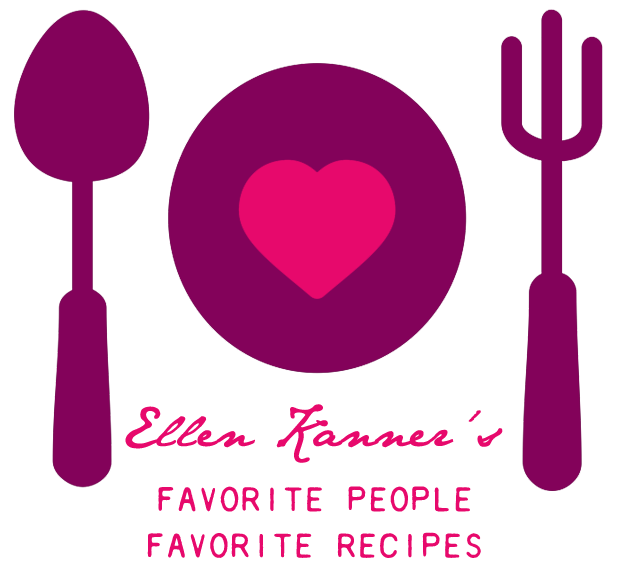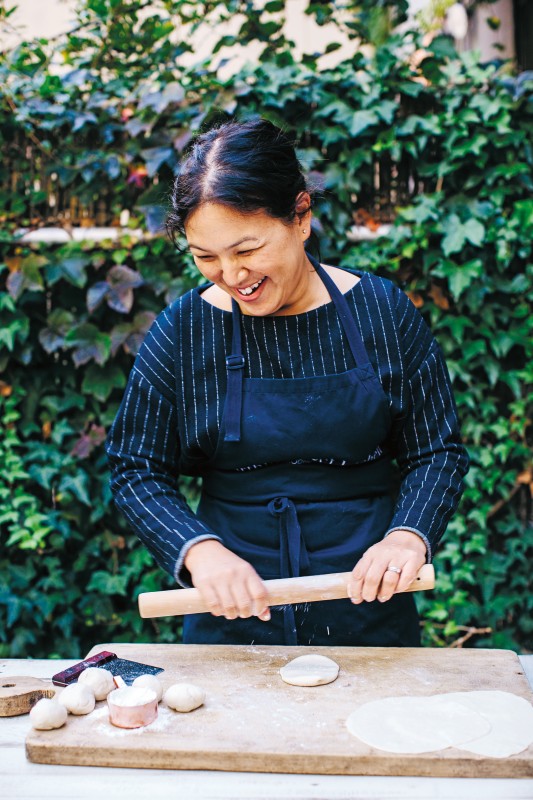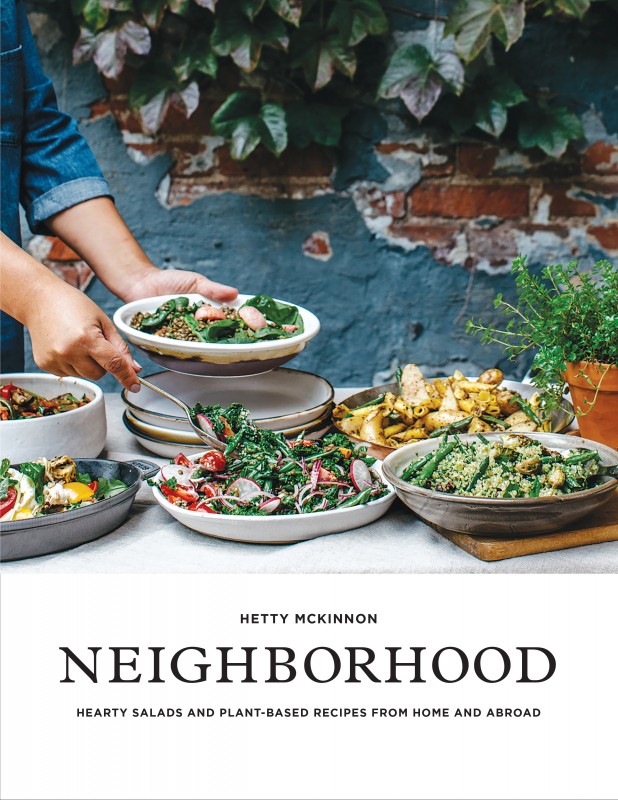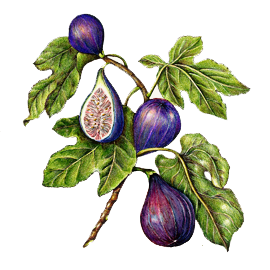
Hetty McKinnon and I haven’t met yet but we’ve bonded, whether she knows it or not. We’re salad sisters, united in the belief that salad is so much more than lettuce. Salad is an opportunity to give each season’s fresh vegetables and fruits the love they deserve, to enhance them with a defining hint of acidity from a squeeze of lemon or splash of vinegar, gild them with a drizzle of tahini or olive oil, toss them with cooked beans and grains for a satisfying chew, sprinkle in a smack of spice, add a confetti of fresh tarragon, cilantro, mint or whatever herb is in your garden and maybe some avocado, nuts or olives — healthy fats with a lux mouthfeel. Okay, we’re a little passionate about salads. It’s not a bad thing.
 Hetty and I also share a passion for the way a meal offers the chance to bring different people together and create community I do it through EatWith dinners, on the page in my columns and in my posts and in my book Feeding the Hungry Ghost. Hetty does it with Arthur Street Kitchen and her wonderful cookbooks Neighborhood and Community, which help demystify the whole kitchen experience and coax you in there with recipes of dishes you really want to eat. She also does it as publisher and editor of Peddler her journal devoted to “the in-between moments of food,” cold watermelon and soggy, sandy sandwiches at the beach, mystery casseroles at potluck dinners, standing around the backyard grill, wreathed in smoke, getting batter-splashed making Sunday morning pancakes with your kids, watching my dad eat the plum cake I made for him for Father’s Day. They’re all part of the quiet but profound role food has in shaping our sense of community, family and self. They’re what binds us to each other.
Hetty and I also share a passion for the way a meal offers the chance to bring different people together and create community I do it through EatWith dinners, on the page in my columns and in my posts and in my book Feeding the Hungry Ghost. Hetty does it with Arthur Street Kitchen and her wonderful cookbooks Neighborhood and Community, which help demystify the whole kitchen experience and coax you in there with recipes of dishes you really want to eat. She also does it as publisher and editor of Peddler her journal devoted to “the in-between moments of food,” cold watermelon and soggy, sandy sandwiches at the beach, mystery casseroles at potluck dinners, standing around the backyard grill, wreathed in smoke, getting batter-splashed making Sunday morning pancakes with your kids, watching my dad eat the plum cake I made for him for Father’s Day. They’re all part of the quiet but profound role food has in shaping our sense of community, family and self. They’re what binds us to each other.
I’m so proud to feature Hetty in My Favorite People, My Favorite Recipes. I have a feeling she’ll become your salad sister, too.
My unconventional journey in salad-making began in 2011, when I established a community kitchen in my inner city home in Sidney, Australia. Twice every week, I would cook healthy and hearty plant-based salad boxes, stack them into my bicycle basket, and deliver them to locals. I called my adventure Arthur Street Kitchen.
 What started as a simple desire to share my favorite vegetable-laden salads with my local community yielded unexpected results. As I traversed the laneways and climbed the hills for my neighborhood Surry Hills, I witnessed a movement that centered upon so much more than food. In the hunting and gathering of stories and histories with local salad-eaters, I saw the importance of food in allowing people to feel connected to others. Because of that, my neighborhood, and the people within it, have become a very big influence on the way I cook and my approach to food.
What started as a simple desire to share my favorite vegetable-laden salads with my local community yielded unexpected results. As I traversed the laneways and climbed the hills for my neighborhood Surry Hills, I witnessed a movement that centered upon so much more than food. In the hunting and gathering of stories and histories with local salad-eaters, I saw the importance of food in allowing people to feel connected to others. Because of that, my neighborhood, and the people within it, have become a very big influence on the way I cook and my approach to food.
In my time as a cook, sharing food has become a vehicle for establishing new friendships and building meaningful connections in my neighborhood. It is humbling to realize that even among the hustle of our modern lives, simple acts like cooking for others, eating together, and sharing food are sentiments that still resonate strongly.
In late 2014, my husband and I packed up our three children, bid adieu to our beloved neighborhood of Surry Hills, and headed north. We landed in France and ate our way through the local Provençal markets. We introduced our children to the sights, sounds, and tastes of Italy, Germany, Finland, and our old “hometown” of London. Finally, we ended our trip in Brooklyn, New York, where the next chapter of our lives and Arthur Street Kitchen began.
Salads allow me to express my love for my other great passion — vegetables. At the heart of every one of my salads is a core seasonal vegetables — from there, the dish can venture virtually anywhere! Add a grain for heartiness, inject from herbs for freshness, incorporate some spice for intrigue, and finish with a nut for crunch. The possibilities are endless.
Having been a vegetarian for over half my life, my belief in a plant-based diet as the ideal way to eat is unerring. But this book does not make statements about vegetarianism. Rather, it is my aim to encourage home cooks to think more creatively about vegetables, understand their versatility, and cook them with more confidence and flair. In my view, when given the right treatment and thought, there is nothing more delicious or satisfying than flavor-packed, vegetable-based salad.
Neighborhood will show home cooks that you don’t have to be a vegetarian to enjoy vegetables, and you don’t have to be a chef to be a good cook.
Provençal Grain Salad with Green Beans and Lemon-Parsley Oil
From Neighborhood by Hetty McKinnon © 2016 by Hetty McKinnon. Photography © 2016 by Luisa Brimble. Reprinted in arrangement with Roost Books, an imprint of Shambhala Publications, Inc. Boulder, CO. www.roostbooks.comIngredients
- ½ cup 100 g Camargue red rice
- 1 cup 200 g brown rice
- ½ cup 100 g quinoa (white, red, or a mix), rinsed
- ½ cup 100 g coarse bulgur wheat (cracked wheat)
- 1 tablespoon extra-virgin olive oil
- ½ lb 200 g green beans, trimmed and cut into 1 in (2 cm) pieces
- One half 15 oz can 250 g chickpeas (about 1 cup), drained and rinsed
- 12 pitted green olives
- 3 tablespoons finely sliced green onions
- ½ cup flat-leaf parsley leaves finely chopped
- 3 tablespoons walnuts toasted and crushed
- Sea salt and black pepper
LEMON-PARSLEY OIL
- 1 small garlic clove very finely chopped
- ½ cup flat-leaf parsley leaves chopped
- 3 tablespoons extra-virgin olive oil
- 1 tablespoon walnut oil or other neutral oil like grapeseed
- Squeeze of lemon juice
- Sea salt and black pepper
SUBSTITUTES
- Camargue red rice: wild rice black rice
Instructions


Leave a Reply